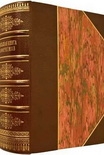The Revelations by Erik Hoel (some good books to read TXT) 📗

- Author: Erik Hoel
Book online «The Revelations by Erik Hoel (some good books to read TXT) 📗». Author Erik Hoel
Standing outside, rubbing at his hip and wincing, a smiling college-age girl hands him a glossy pamphlet protesting NYU’s aggressive buying up of real estate and its effect on the local community. Kierk thanks her, but once he’s a bit past her he limps over to a recycling barrel to throw it away. As he crumples it up he realizes that the pamphlets in the subway had all been brand new, shiny, like someone had been handing them out there and had dropped them. The man who disappeared into the underground? If that hadn’t just been a symptom of the heat? Maybe he had also been handing them out there late last night, and Atif had come up, said something, they got into an argument . . .
Kierk limps about for a long time as night comes down, all the way to the docks. By then it is dark out, and the city lights have switched on, and in the still-hot blackness he looks out on the lit figurine of the Statue of Liberty. His thoughts are like the bodies of black waters making their way down streets, alleys, across cobblestones and pavement and concrete, submerging street signs, a wash of mannequins and paper and garbage and trash barrels and eaten-away photographs and that creased pamphlet, all slipping softly in the night into the Atlantic, a dark sheet bending over the dock and into the sea. What is it like, to see that bright headlight thundering down, to be doomed by clockwork and automata? What is it like to be struck and be so violently done away with, to know that it was all leading up to this, that every choice you ever made had led you here, to this absurdity of fear? What is it like to be? Turning away from the water, he looks into the trees lining the dark, the streetlights, and beyond the city howling in steel and glass, the backlit stumps of gargoyles leer down, whole skyscrapers have become obelisks of light. Something swoops above him, dark forms, a whole cloud of them, a sentence of wings, the arcane and familial lives of bats. In their movements they are an unbreakable code.
SUNDAY
Kierk wakes up in the long troubled highways of dreaming’s end, and, rising, nearly sleepwalks to the bathroom and only comes to himself fully with his hands on the sink. Some time is spent admiring the deep blush of bruise, a spreading purple stain across his right hip.
It is upon checking his new NYU email that Kierk finds it, addressed to all the Crick Scholars as a group.
Subject line: To Whom It May Concern
Subject body: You are very far in a strange land. This is where my boy died in a strange land. The school did not have air-conditioning when he was a child. Think on this. He loved cricket as a boy. Then he discovered computers. He begged me to buy one and he spent so much time learning. His first love is here with me. She helps me write this. She cannot believe. He was the most intelligent, kind young person. I hope you got to know some of that. What happened to my boy? What happened with my boy I am talking to everyone. Asking everyone. No one will tell me anything. Accident! He was so smart. Nothing makes sense. Please help me. I need help now. I need help now God. What happened to my boy?
Kierk takes a deep breath. He is surprised to find his eyes watery. Then—what can I say? Your boy has been turned into a smear underneath New York? He shudders at the harsh language of his own thoughts, closes the email, then opens the window, smelling the humid air of the city.
It’s Sunday, so Kierk, in jeans and a V-neck shirt with the Mets cap Carmen bought for him pulled low over his eyes and his notebook at his side, walks around for a while until he finds a brunch place with outdoor seating. There, amid the chatter of couples and families, he orders an omelet, a stack of blueberry pancakes, three cups of coffee, and a glass of orange juice. Strangely, Atif’s death has stoked his appetite, a hunger not just for food, but for everything. Hungry hungry living hippo. Smacking his lips contentedly as he finishes, and still flush from the stipend money, Kierk tips forty percent then drains the last of his coffee. He heads up Broadway and finds himself back near Union Square Park, in which an art fair is being held. He is quickly immersed in the panoply of colors, tents, and people.
The tent city holds a throng of amateur artists displaying their wares. Kierk sits in the middle of the art fair, quickly getting lost in the maze of his notebook. The best writing Kierk does is always when he completely forgets himself, becoming only a vessel to pour words through, and at the end of such a period, after the deep immersion of a paragraph or a page, he’ll look up and it’s like he is coming up from being submerged, a sensorial beaching—what whales must feel when they break sea and sky.
It is in this manner that he writes furious and unusable sentences on the steps, too pure and unrefined to be sensible, all keenings of language, bellows of description, words like birch logs falling from





Comments (0)